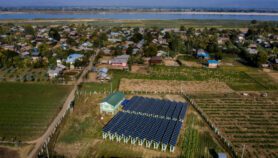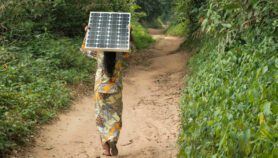By: Laura García
Send to a friend
The details you provide on this page will not be used to send unsolicited email, and will not be sold to a 3rd party. See privacy policy.
[LONDON] China and India should adopt sustainable energy policies to avoid endangering energy security and control carbon emissions, said representatives of the International Energy Agency (IEA) this week (7 November).
The comments were made at the launch of IEA’s annual World Energy Outlook report ‘China and India Insights’ in London.
The report points out that global energy needs will grow 55 per cent by 2030 if governments stick to their present policies. China and India will account for 45 per cent of the increase in that ‘reference scenario’.
The IEA said that governments worldwide — not just in China and India — should apply sustainable policies, such as improving energy-efficient technologies and cutting carbon dioxide emissions.
"The challenge is global so solutions must be global", said Nobuo Tanaka, executive director of IEA.
The booming power generation sectors in China and India will mean that coal will be the fuel most in demand, with India and China accounting for over 80 per cent of the growth in coal demand by 2030.
Without intervention, carbon dioxide emissions will increase alarmingly over the next two decades — projected to reach 42 gigatonnes (Gt) in 2030 from 27 Gt in 2005.
"China is expected to surpass the United States as the largest carbon dioxide emitter in 2007, and India will reach that position by 2015," said Fatih Birol, IEA’s chief economist.
The report says that in an ‘alternative scenario’, in which environmentally friendly measures were to be taken, global energy demand would grow by 0.5 per cent less per year than in the reference scenario.
And energy-efficient technologies would help to level off carbon dioxide emissions in the 2020s to reach 34 Gt in 2030, or 19 per cent less than in the reference scenario.
Tougher efficiency standards for air conditioners and refrigerators alone would save enough energy by 2020 that the Three Gorges Dam wouldn’t need to be built, Birol added.
IEA’s report points out that China’s and India’s governments are planning sustainable policies. The IEA will present their analysis to both countries’ authorities.
Asked whether developing countries are setting an example in sustainable growth, William Ramsay, director of the IEA Global Energy Office, told SciDev.Net, "In some cases, yes, and in some cases, no. What we are trying to do with some countries, including Latin American countries, is say ‘Look, we have identified the best practices and you can save a lot of money if you go straight to them.’ "













